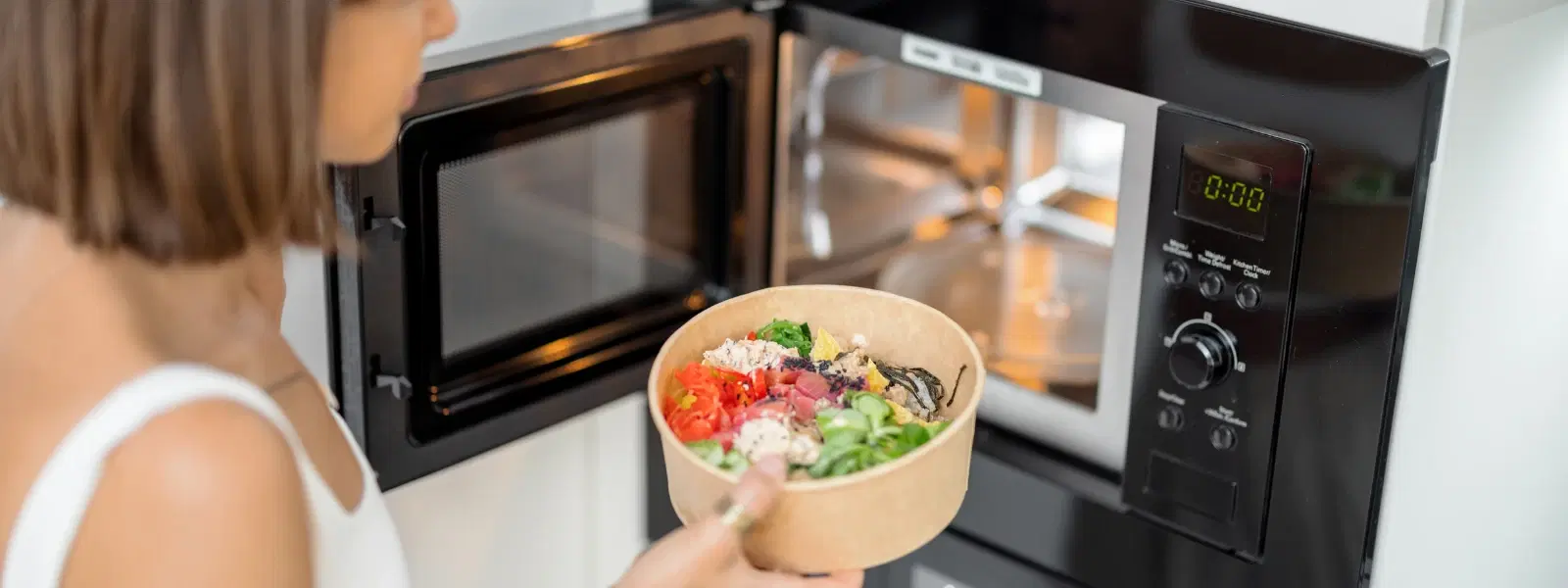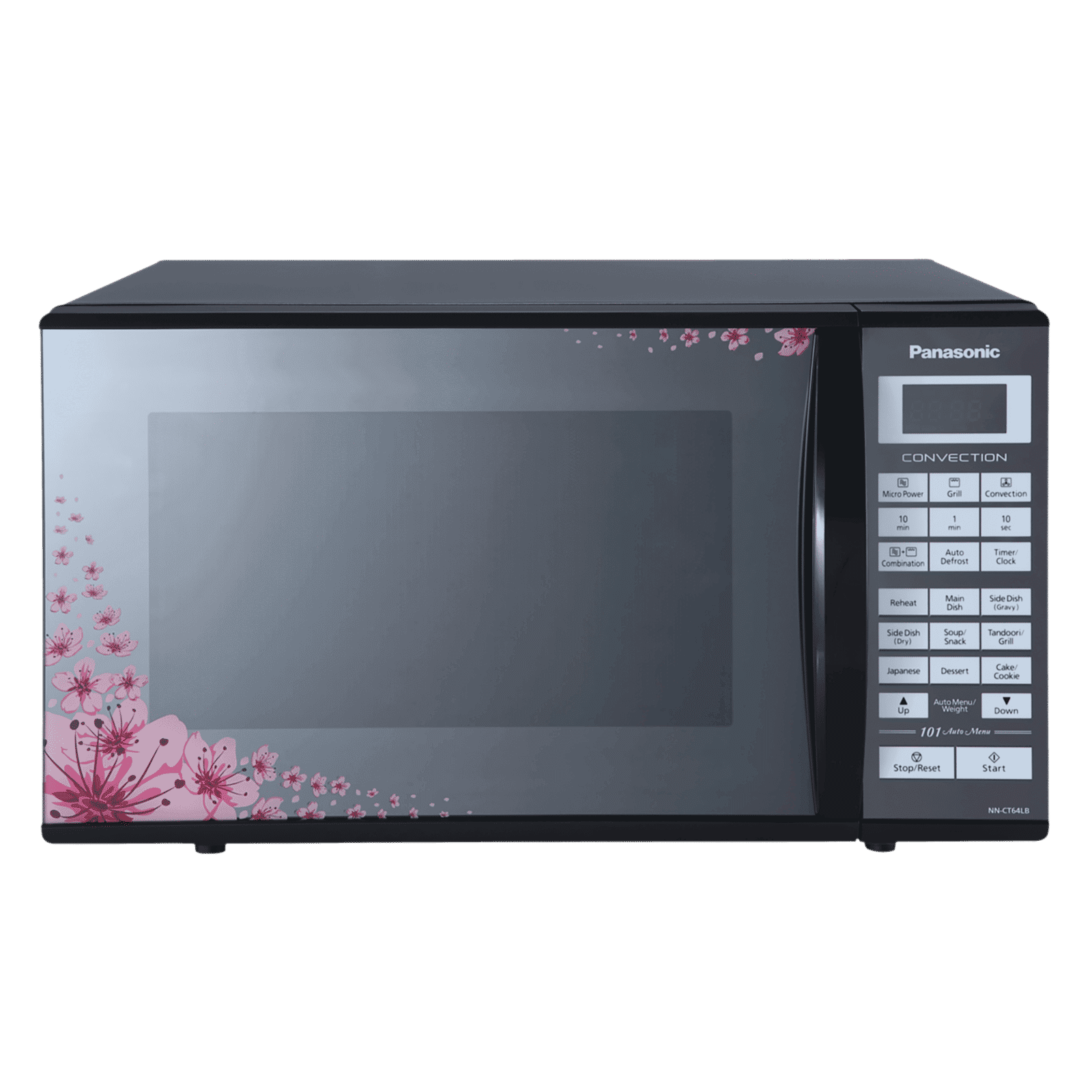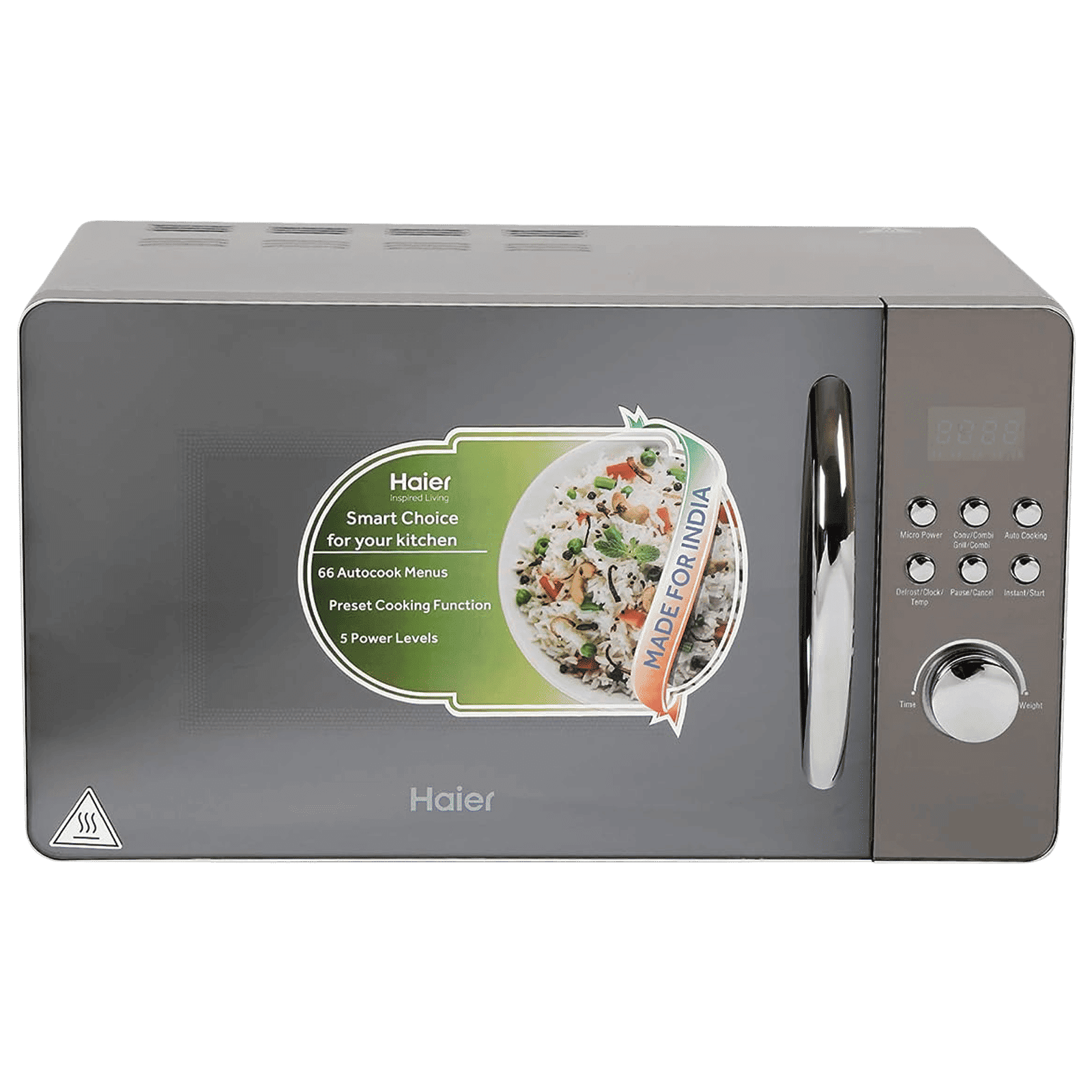
Home Appliances
•03 min read

Buy Panasonic 27L Convection Microwave Oven with 101 Autocook Menus (NN-CT64LBFDG, Silver/Black) online at best prices from Croma. Check product details, reviews & more. Shop now!
Microwaves have revolutionised the way we cook, offering speed and convenience in our busy lives. However, there is often uncertainty surrounding the use of aluminium utensils in a microwave. In this blog post, we unpack the common concerns regarding microwave compatibility with aluminium, clarify safety tips, and offer easy-to-follow guidelines for safe microwave cooking.
Microwave ovens heat food using electromagnetic waves. These waves excite water molecules and generate heat quickly. This rapid heating method means that the materials used in the cooking process must allow the microwaves to pass through uninterrupted for even cooking.
Aluminium is a highly conductive metal with a reflective surface. These properties can cause issues such as sparks or even damage to the microwave if used inappropriately. This is why many are left wondering, can aluminium go in microwave safely? It is important to understand that the interaction between metal utensils and the waves is very different from that of microwave safe utensils like glass or ceramic.
There are several misconceptions regarding aluminium utensils in microwave safety. Many believe that any use of metal is unsafe in the microwave. However, scientific insights show that the issue is more nuanced. Problems such as sparking and uneven cooking occur when the aluminium is used in large, continuous pieces which can reflect microwaves back into the magnetron.
In some specific scenarios, using metal in microwave ovens can be safe. For instance, using small amounts of aluminium or specially designed microwave-safe aluminium containers may pose no risks. It is essential to follow manufacturer instructions and guidelines for using any aluminium utensils in this context.

Buy Haier 20L Convection Microwave Oven with 66 Autocook Menu (HIL2001CSPH, Silver) online at best prices from Croma. Check product details, reviews & more. Shop now!
When preparing food in the microwave, always choose utensils that have been labelled as microwave safe. Check for clear instructions from the manufacturer, and avoid using aluminium utensils unless they are specifically designed for microwave cooking. Following tips for using metal in microwave ovens can prevent sparks or damage.
Alternatives such as glass, ceramic, silicone, and heat-resistant plastics are generally preferred for microwave cooking. These materials do not react with electromagnetic waves, making them reliable choices for your everyday microwave needs. Such smart choices ensure that you enjoy the best of both performance and safety while cooking.
If you are looking for options beyond aluminium utensils for microwave cooking, consider using borosilicate glass or heat-resistant plastics. These utensils are designed to withstand rapid heating without any safety risks and are excellent for ensuring even cooking every time.
Although it is generally not advisable to use metal utensils, there are exceptions. For instance, aluminium foil in microwave use can occasionally be acceptable if used sparingly to shield particular areas of food. In such cases, it is extremely important that the foil does not touch the walls of the microwave. Always follow precautions and guidelines to maintain safe microwave cooking. Remember, adhering to microwave utensil safety tips not only safeguards your appliance but also your home.
Insight Corner: "Did You Know? While aluminium foil can sometimes be used in a microwave for shielding purposes, it must be done with caution. Ensure the foil doesn’t touch the walls of the microwave to avoid sparks or damage."
Aluminium utensils are generally not recommended for use in microwave ovens as they can produce sparks and cause damage. However, there are exceptions with specially designed microwave-safe aluminium containers.
In most instances, aluminium is not safe for microwaves due to its reflective properties which can lead to uneven cooking and potential hazards.
Standard aluminium dishes are not microwave safe. If a dish is specifically labelled as microwave-safe, it is crucial to follow the manufacturer’s guidelines strictly.
Accepted materials include glass, ceramic, silicone, and heat-resistant plastics. These are recommended for microwave cooking due to their safe interaction with electromagnetic waves.
Aluminium foil may be used in limited quantities to shield parts of the food, but it must be done carefully. The foil should not touch the microwave walls to prevent sparks and damage.
Microwaves are truly versatile kitchen appliances, yet understanding the right utensils for microwave cooking is crucial. Aluminium utensils, with their conductive and reflective nature, are mostly not compatible with microwave ovens unless specifically designed for such use. Opting for alternatives like glass, ceramic, or silicone not only simplifies the process but also maximises both safety and efficiency. As you shop smartly, remember there are numerous choices available on trusted platforms that offer additional benefits like NeuCoins rewards. This approach of making informed decisions will help you progress in life and ensure a seamless, hassle-free cooking experience.